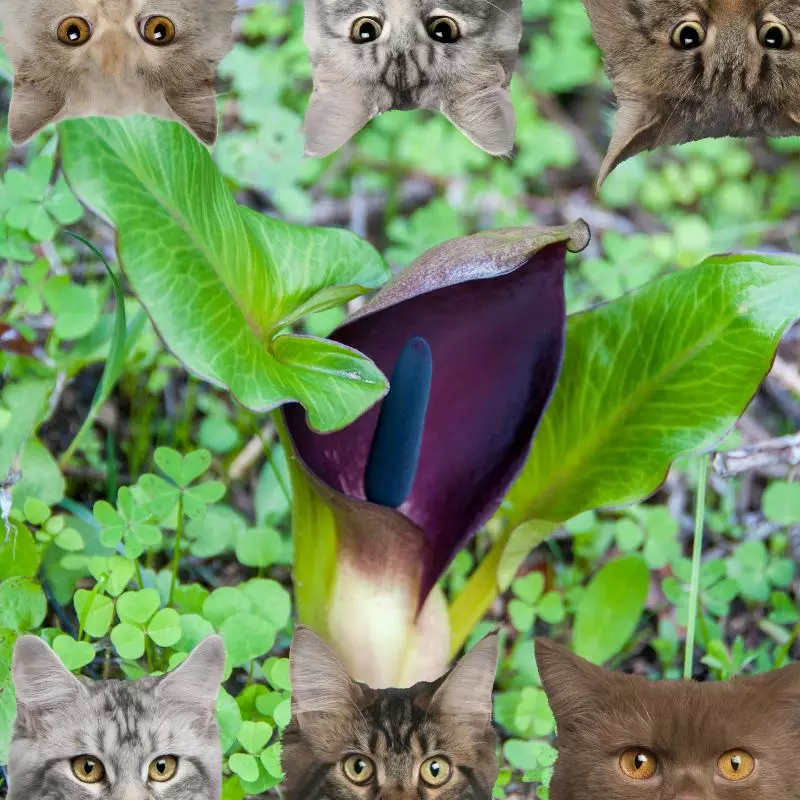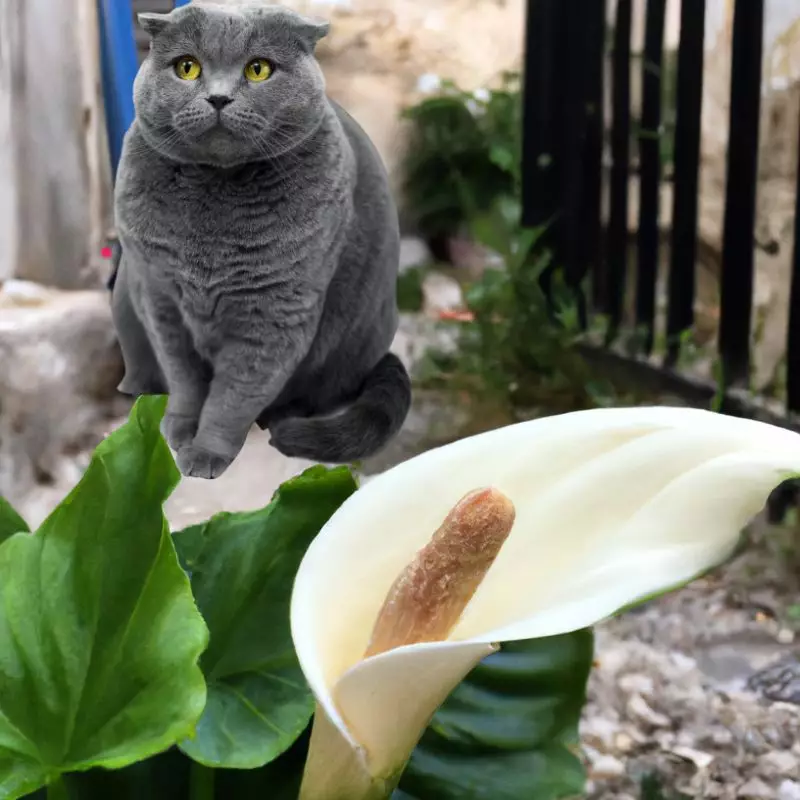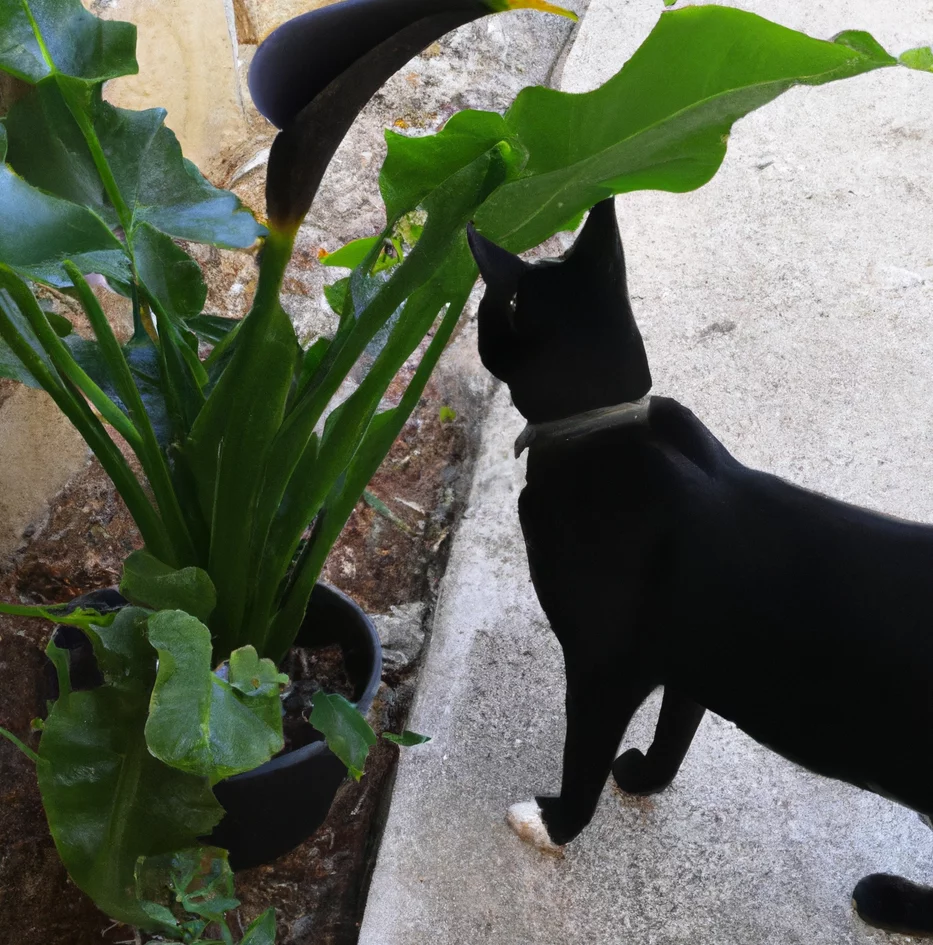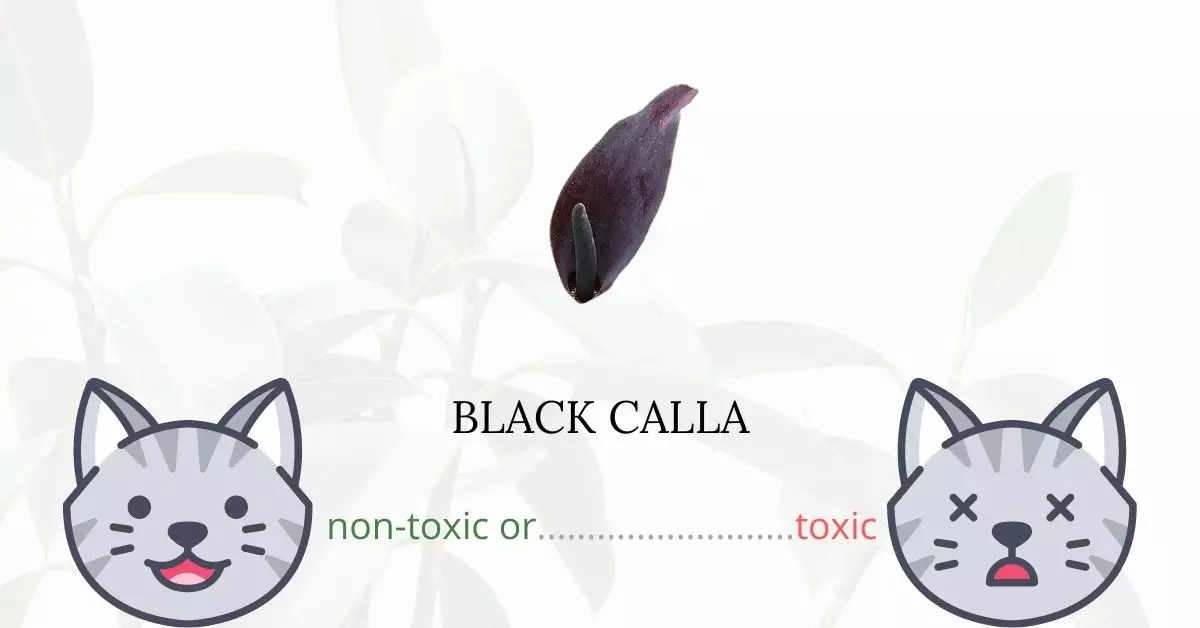Yes, Black Calla, also known as Solomon’s Lily, is toxic to cats. Even small amounts of this plant can result in gastrointestinal distress and irritation for cats, while larger ingestion can lead to severe organ failure. This is primarily due to the toxic insoluble calcium oxalates found throughout the Solomon’s Lily plant. When chewed, these plants release sharp calcium oxalate crystals, known as raphides, which can cause considerable pain and inflammation in the cat’s mouth, esophagus, and further into the digestive system. An immune response to these toxins can result in swelling that might hinder a cat’s breathing.
This article has been prepared in collaboration with a team of experienced DVMs (doctors of veterinary medicine). Their invaluable insights enable us to offer precise and current information about the potential risks associated with various plants, particularly Black Calla in this context. Furthermore, we have consulted high-authority sources like ASPCA and PetMD to ensure comprehensive and reliable information on every plant we discuss.
Clinical Signs of Black Calla or Solomon’s Lily Poisoning in Cats

When a cat comes into contact with, inhales the scent of, or ingests Black Calla, also known as Solomon’s Lily, there are distinct clinical signs that may manifest due to the plant’s toxic components. Generally, symptoms can appear within two hours or even sooner after exposure. Here are the clinical signs of Solomon’s Lily poisoning and the reasons behind each:
- Shaking of the Head & Gnawing at the Gums: This may be observed due to the immediate irritation caused by calcium oxalate crystals in the plant. These sharp crystals can cause discomfort, prompting the cat to shake its head and gnaw at its gums in an attempt to alleviate the irritation.
- Excessive Drooling: The initial contact with the plant’s toxins can lead to a sudden increase in salivation as the body tries to flush out the irritants.
- Inflammation of the Mouth, Swelling of Lips, Tongue, and Throat: The calcium oxalate crystals in the plant can cause inflammation and swelling when they come in contact with sensitive tissues. This can be particularly severe in the oral cavity.
- Dysphagia (Difficulty in Swallowing): Swelling and inflammation in the throat can make it challenging for the cat to swallow.
- Nausea and Vomiting: Ingesting the plant can irritate the stomach lining, leading to nausea and potential vomiting as the body attempts to expel the toxins.
- Diarrhea: The gastrointestinal system may become upset due to the plant’s toxins, leading to diarrhea.
- Appetite Loss: The overall discomfort and gastrointestinal distress can result in a decreased desire to eat.
- Depression: Cats may become lethargic and show signs of depression as a response to the discomfort and pain from the poisoning.
- Dyspnea (Breathing Difficulty): Swelling in the throat can obstruct the airways, leading to difficulty in breathing.
- Abnormalities of the Heart: The toxins in the plant can affect the cardiovascular system, leading to potential heart abnormalities.
- Dilated Pupils: A neurological response to the toxins might cause pupils to dilate.
- Coma: In severe cases of poisoning, and if not treated promptly, the cat might fall into a coma due to the overwhelming amount of toxins in its system.
It’s crucial for cat owners to recognize these signs and seek veterinary care immediately if they suspect their cat has come into contact with Black Calla or Solomon’s Lily.
First Aid and Treatment of Black Calla or Solomon’s Lily Poisoning in Cats

Dehydration can occur if the cat has been vomiting or diarrhea for an extended period of time. Intravenous fluids and electrolytes can be given to the cat to assist restore normal fluid volume. Various drugs, such as antihistamines to reduce edema and open the cat’s airways and sucralfate to prevent internal stomach irritation, may be administered to the cat throughout the phase to alleviate symptoms. The cat will have to be hospitalized until his breathing returns to normal.
Recovery from Black Calla or Solomon’s Lily Poisoning in Cats
Large ingestions are uncommon since Black Calla has a bitter taste and acts as an instant irritation to the tongue thus, most cases are mild only. Most cats who suffered from Black Calla poisoning recover within 24 hours. In rare severe cases of poisoning, recuperation may take up to two weeks.
Prevention of Black Calla or Solomon’s Lily Poisoning in Cats

Hazardous plants should be avoided or kept out of reach of your pet, especially if your cat is a nibbler. Give your cat some cat grass to nibble on instead. If you enjoy having fresh bouquets or floral displays in your home, look for cat-friendly flowers. Keep your cat’s activity outdoors minimal.
If you love plants but have cats at home, check out these lists:





